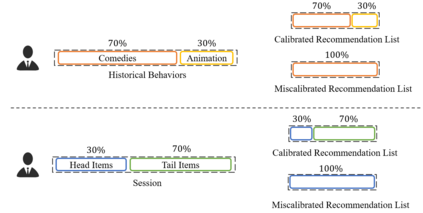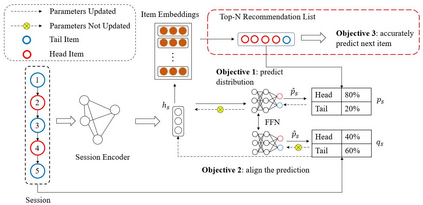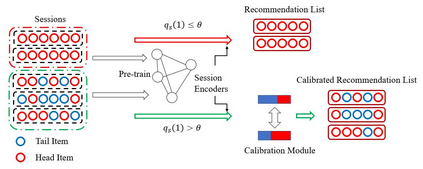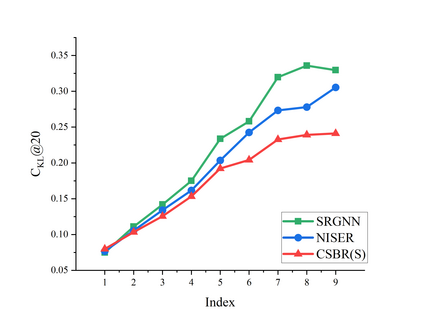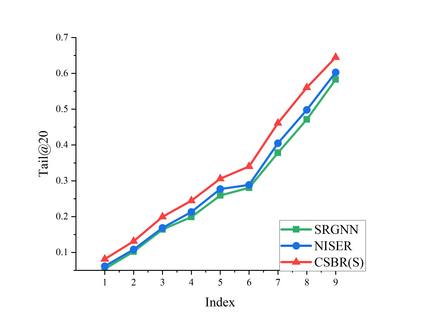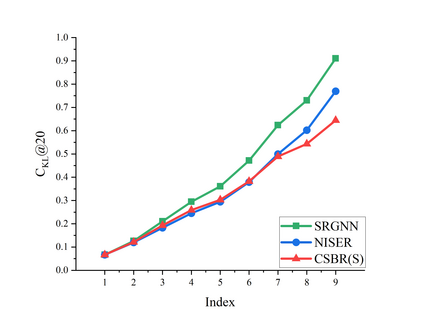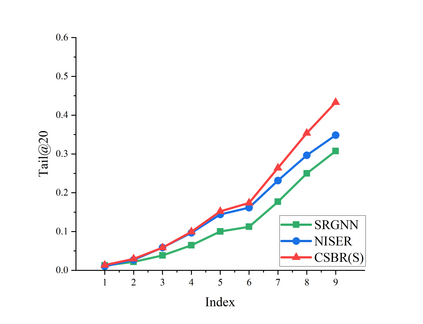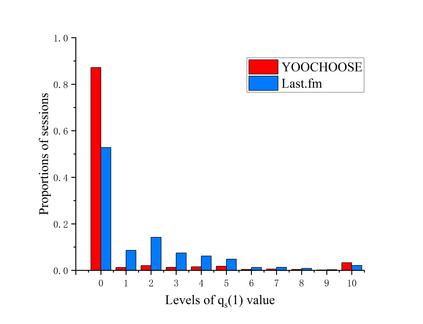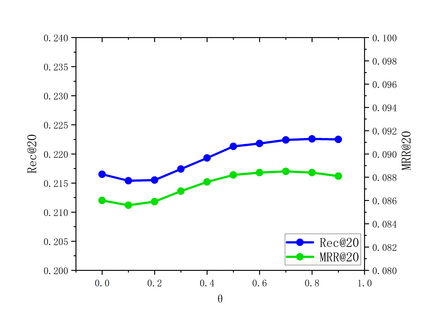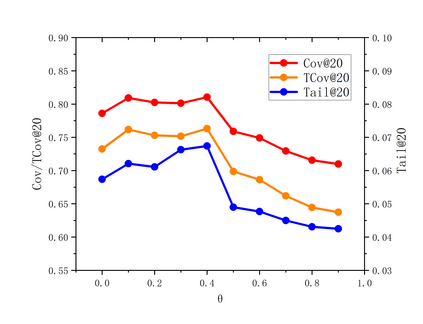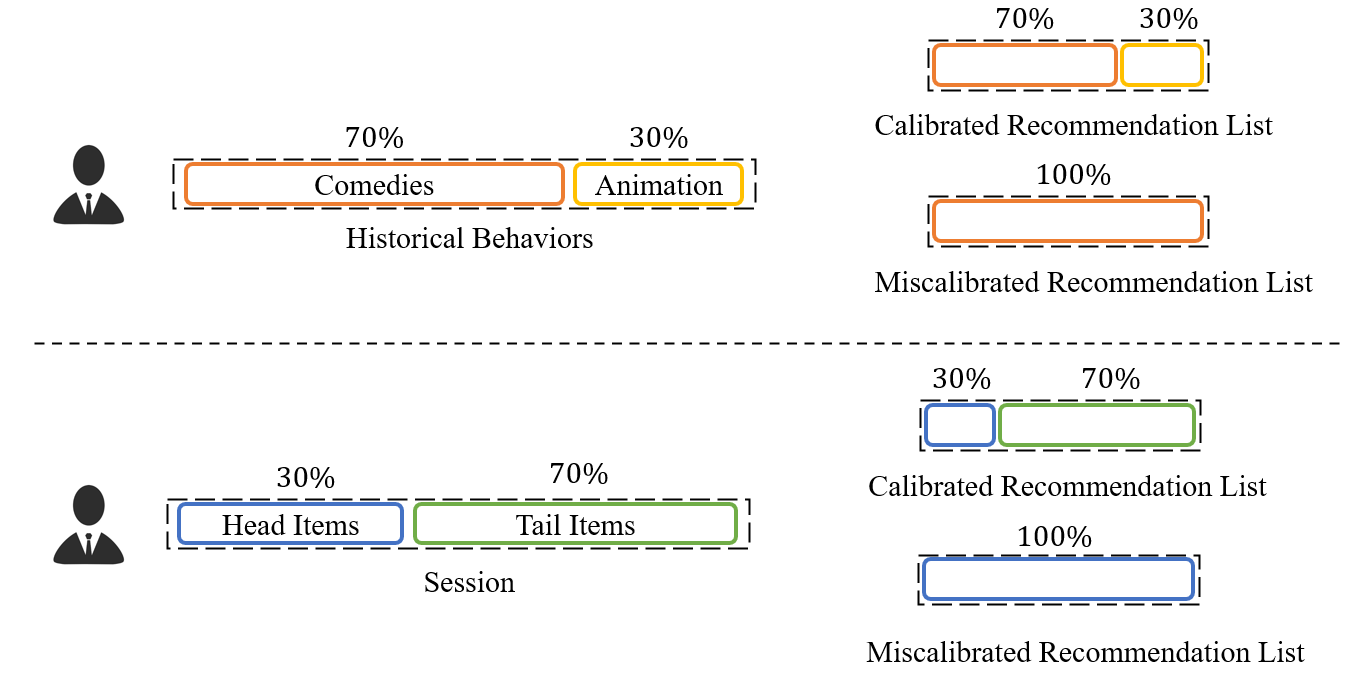Accurate predictions in session-based recommendations have progressed, but a few studies have focused on skewed recommendation lists caused by popularity bias. Existing models for mitigating popularity bias have attempted to reduce the overconcentration of popular items by amplifying scores of less popular items. However, they normally ignore the users' different preferences toward long-tail items. Thus, we incorporate calibration, where calibrated recommendations reflect the users' interests in recommendation lists with appropriate proportions, to mitigate the popularity bias from the user's perspective. Specifically, we propose a calibration module to predict the ratio of tail items in the recommendation list from the session representation, and align it to the ongoing session. Additionally, we utilize a two-stage curriculum training strategy to improve prediction in the calibration module. Experiments on benchmark datasets show that our model can both achieve the competitive accuracy of recommendation and provide more tail items.
翻译:对届会建议所作的准确预测已经取得进展,但有些研究侧重于受欢迎偏差导致的建议列表偏差。现有的减少受欢迎偏差模式试图通过扩大少受欢迎项目的分数来减少受欢迎项目的过度集中。然而,它们通常忽视用户对长尾项目的不同偏好。因此,我们纳入了校准,其中校准建议以适当比例反映用户在建议列表中的利益,以便从用户的角度减少受欢迎偏差。具体地说,我们提议了一个校准模块,以预测来自届会代表的建议列表中的尾项目比率,并将其与正在进行的届会相匹配。此外,我们利用两阶段课程培训战略来改进校准模块的预测。基准数据集实验表明,我们的模型既可以实现建议的竞争准确性,也可以提供更多尾项目。

